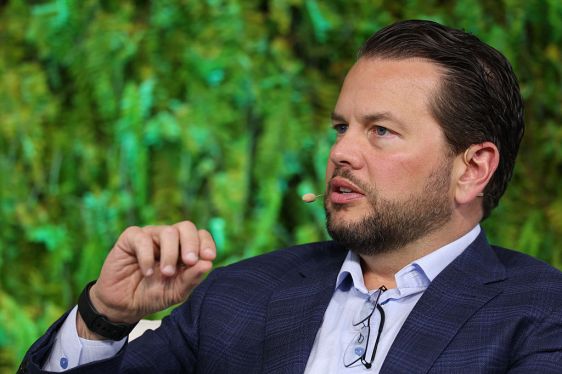Pinterest CEO Bill Ready told investors on the company’s second-quarter earnings call that the social app and inspirational bookmarking site could be considered an “AI-enabled shopping assistant.” However, he believes the agentic web, where AI agents shop on users’ behalf, is still far in the future.
The remarks came in response to a question about the agentic web, which could reshape the search funnel and affect businesses like Pinterest. The platform positions itself at the early stages of the shopping journey, where users seek ideas that may later turn into purchases. Investors are concerned that if AI understands users’ interests, it could bypass platforms like Pinterest by directing users straight to personalized recommendations.
Ready addressed these concerns, stating that the idea of AI agents making purchases autonomously is still distant. He noted that users may not be ready to fully delegate shopping decisions to AI, except for very utilitarian transactions.
Despite this, Ready emphasized Pinterest’s role as an AI-driven shopping assistant. He explained that while the company doesn’t typically frame itself this way, users often say “Pinterest just gets me” because the app proactively recommends content aligned with their tastes and style—much like a personal shopping assistant.
Pinterest described the current era as a “Cambrian moment” for AI-driven innovation. The company highlighted its use of AI in recommendation systems, personalization, proprietary multimodal models combining text and images, visual search, conversational search, and advertising efficiency improvements.
The discussion did not address growing user concerns about AI-generated, low-quality content flooding the platform. Earlier this year, Pinterest introduced tools to combat this issue, including labels for AI-generated images and user controls to filter out such content. It also did not mention recent mass user bans, which some attribute to flawed AI moderation systems. Similar issues have been reported across other platforms like Facebook, Instagram, and Tumblr.
Ready also spoke about Pinterest’s efforts to attract AI talent, emphasizing the company’s focus on responsible AI use. He highlighted Pinterest’s mission to create a positive alternative to traditional social media by tuning AI for positivity.
Despite beating sales expectations with $998 million in revenue, Pinterest’s stock dropped after reporting adjusted earnings per share of 33 cents, slightly below the 35 cents analysts expected. The company noted that over half of its monthly users are Gen Z, and male user growth surged 95% year-over-year.

